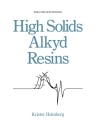The authors explain the changes in the thermophysical and thermomechanical properties of polymer composites under elevated temperatures and fire conditions. Using microscale physical and chemical concepts they allow researchers to find reliable solutions to their engineering needs on the macroscale. In a unique combination of experimental results and quantitative models, a framework is developed to realistically predict the behavior of a variety of polymer composite materials over a wide range of thermal and mechanical loads. In addition, the authors treat extreme fire scenarios up to more than 1000°C for two hours, presenting heat-protection methods to improve the fire resistance of composite materials and full-scale structural members, and discuss their performance after fire exposure.
Thanks to the microscopic approach, the developed models are valid for a variety of polymer composites and structural members, making this work applicable to a wide audience, including materials scientists, polymer chemists, engineering scientists in industry, civil engineers, mechanical engineers, and those working in the industry of civil infrastructure.
Inhoudsopgave
Preface
INTRODUCTION
Background
FTP Materials and Processing
FRP Structures
Structural Fire Safety
Summary
MATERIAL STATES OF FRP COMPOSITES UNDER ELEVATED AND HIGH TEMPERATURES
Introduction
Glass Transition
Leathery-to-Rubbery Transition
Decomposition
Summary
EFFECTIVE PROPERTIES OF MATERIAL MIXTURES
Introduction
Volume Fraction of Material State
Statistical Distribution Functions
Estimated Effective Properties
Summary
THERMOPHYSICAL PROPERTIES OF FRP COMPOSITES
Introduction
Change of Mass
Thermal Conductivity
Specific Heat Capacity
Time Dependence of Thermophysical Properties
Summary
THERMOMECHANICAL PROPERTIES OF FRP COMPOSITES
Introduction
Elastic and Shear Modulus
Effective Coefficient of Thermal Expansion
Strength
Summary
THERMAL RESPONSES OF FRP COMPOSITES
Introduction
Full-Scale Cellular Beam Experiments
Thermal Response Modeling of Beam Experiments
Full-Scale Cellular Column Experiments
Thermal Resonse Modeling of Column Experiments
Summary
MECHANICAL RESPONSES OF FRP COMPOSITES
Introduction
Full-Scale Cellular Beam Experiments
Mechanical Response Modeling of Beam Experiments
Full-Scale Cellular Column Experiments
Mechanical Response Modeling of Column Experiments
Axial Compression Experiments on Compact Specimens
Modeling of Compression Experiments on Compact Specimens
Axial Compression Experiments on Slender Specimens
Modeling of Compression Experiments on Slender Specimens
Summary
POST-FIRE BEHAVIOR OF FRP COMPOSITES
Introduction
Post-Fire Behavior of FRP Beams
Post-Fire Modeling of FRP Beams
Post-Fire Behavior of FRP Columns
Post-Fire Modeling of FRP Columns
Comparison to Post-Fire Beam Experiments
Summary
FIRE PROTECTION PRACTICES FOR FRP COMPONENTS
Introduction
Passive Fire Protection
Active Fire Protection
Passive Fire Protection Applications with FRP Components
Active Fire Protection Applications with FRP Components
Summary
Index
Over de auteur
Yu Bai received his Ph D in civil engineering from the Ecole Polytechnique Fédérale de Lausanne (EPFL) Switzerland in 2009 and became an academic in the Department of Civil Engineering of Monash University Australia in the same year. His research investigates the material and structural responses of fiber-reinforced polymer composites under critical load and environmental conditions such as fire, combined temperature and humidity, and sea water exposure. His research efforts are also focused on developing new building techniques and structural systems using fiber-reinforced polymer composite materials. In 2012, he received the Discovery Early Career Researcher Award from the Australia Research Council, as the inaugural recipient.
Thomas Keller obtained his civil engineering degree and his doctoral degree from the Swiss Federal Institute of Technology (ETH) Zurich. In 2007, he was appointed Full Professor of Structures at the School of Architecture, Civil and Environmental Engineering at the Ecole Polytechnique Fédérale de Lausanne (EPFL), Switzerland. In addition, Thomas Keller is founder and director of the Composite Construction Laboratory (CCLab). His research work is focused on polymer composites and hybrid materials and engineering structures with an emphasis on lightweight multifunctional structures.












